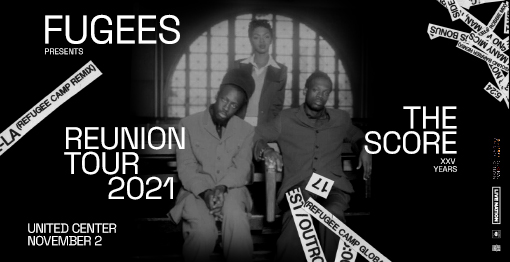

Hill reached out, and she said, “It’s the 25th anniversary.” She first reached out to, I think, Wyclef and then my boy, Jerry Wonda.

You might have something here.” Then came The Score. So our shows became electrifying, and the label was like, “Man, you’ve got to capture that magic on stage on the record. Take your ass on the road.” So we started to really find our identity on the road. But the label was like, “We don’t really give a fuck. We dropped right before that, and we got caught in the storm. Remember that whole Fu-Shnickens, Leaders Of New School, that rah rah? Illmatic slowed everything down. When we did the album, if you know hip-hop, you know that we came in as that sound was dying off.

Ruffhouse, Columbia, they had the GOATs they had Kriss Kross, Cypress Hill. We came in as our own thing you’re going to fail big or win big. We came up in an era where artists had more creative direction over the product. Boom! That’s where “Fu-Gee-La” came from. Then you got that soul-singing beautiful Motown, Ms. That rice and beans, plantains, machetes. Then we were like, “We going to be ourselves.” We’re Caribbean, Haitian, Brooklyn. We was like, “Yo, we want to be in that mix.” On Blunted, we were trying to be like what was out there. It was just a great moment with everybody that was coming in - Snoop, Pac, Biggie. We felt the love we had for each other at that time, the love for the music, and the love for the hip-hop and the culture.

We just believed that somehow we were going to succeed. “Let’s have a dream, man.” “Just believe, yo.” “This going to be it,” not knowing what it is. Just a bunch of kids leaving college, leaving home. The basement was moments, man, that could never be recaptured. While the group prepares to close out the year on a stadium trek that will take them from Newark to London to Nigeria, I spoke to Pras, whose friendships with Lauryn and Wyclef first brought the group together, to cover the storied past, the surprising present, and the possible future of the Fugees. They reconvened for a few dates in the mid-2000s, and that was it until Global Citizen this September. The hits - “Ready,” “Fu-Gee-La,” and covers of Bob Marley’s “No Woman No Cry” and Roberta Flack’s version of “Killing Me Softly With His Song” - pushed The Score to multiplatinum sales. Nods to ’70s soul and reggae flanked slick R&B and gritty raps. The rest is history: The blend of Lauryn’s soulful vocals and perfect rhymes Clef’s tricky flows and guitar chops Pras’s pop and production smarts and assists from collaborators like New Jersey rap crew the Outsidaz, bassist and producer Jerry “Wonda” Duplessis, and dancehall geniuses Sly and Robbie bridged musical and cultural gaps. The first album - 1994’s Blunted on Reality, a promising batch of personable tunes lacking a certain polish - sold modestly, but a smooth remix of the high-energy single “Nappy Heads” by Queens producer Salaam Remi put the group on enough radars to earn another shot. Lauryn Hill released The Score, their second album and an unlikely rap classic. That same year, the trio comprising Wyclef Jean, Pras Michel, and Ms. Last month, ’90s hip-hop legends the Fugees announced a surprise reunion tour, staging a tantalizing preview of it at Manhattan’s Pier 17 with an impossibly large band in tow, treating the audience to classics like “Ready or Not” and deep cuts like “Zealots.” They hadn’t played on the island in 25 years, not since Hoodstock, a 1996 show with Biggie and Wu-Tang Clan that ended in a stampede after mistaken reports of gunshots. Photo-Illustration: Vulture Photo by Lionel FLUSIN/Gamma-Rapho via Getty Images


 0 kommentar(er)
0 kommentar(er)
